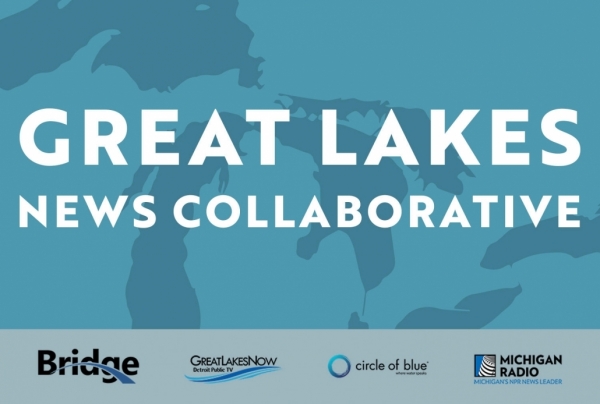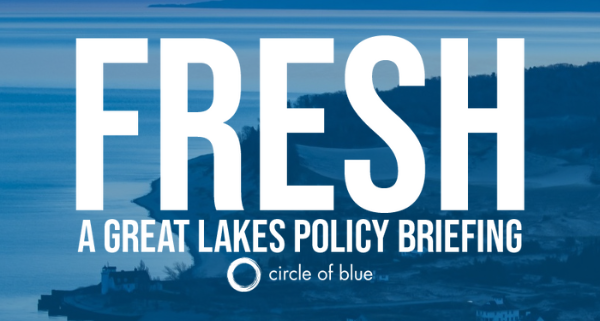FRESH, November 8, 2022: Ontario Government Proposes Less Strict Wetlands Protections
November 8, 2022
Fresh is a biweekly newsletter from Circle of Blue that unpacks the biggest international, state, and local policy news stories facing the Great Lakes region today. Sign up for Fresh: A Great Lakes Policy Briefing, straight to your inbox, every other Tuesday.
— Brett Walton, Interim Fresh Editor
This Week’s Watersheds
- Based on a two-decade study of an Ontario lake, researchers see links between road salt and impaired waters.
- The Detroit-based energy company DTE moves up its timeline to retire coal plants, including one of the country’s largest, along Lake Erie.
- Ohio’s governor announces $2.4 million in grants to help cities map the location of lead service lines.
The conservative government in Ontario is pushing for changes to the province’s wetlands policy that would loosen protections for “provincially significant wetlands.”
“If we only look at each loss in isolation and we don’t ever add them all up, that incremental loss seems negligible. But from the broader perspective of cumulative effects, it’s enormous.” — Rebecca Rooney, an associate professor at the University of Waterloo who researches wetland ecology.
High-value wetlands in Ontario that provide habitat, absorb rain, filter water, and buffer floods could see fewer protections under a proposed policy change, The Narwhal reports. As part of a plan to build more housing, the Doug Ford administration wants to redo the process for conferring protected status to wetlands. Even though the government wants to offset losses by building replacement wetlands, ecologists say that it’s not a one-to-one trade. Southern Ontario has already lost about three-quarters of its natural wetlands.
Fresh from the Great Lakes News Collaborative

- Benton Harbor lead line replacement nears completion — Bridge Michigan
- Report from environmental groups accuses power industry of failing to clean up coal ash dumps — Michigan Radio
- New video game teaches watershed management — Great Lakes Now
The Great Lakes News Collaborative includes Bridge Michigan; Circle of Blue; Great Lakes Now at Detroit Public Television; and Michigan Radio, Michigan’s NPR News Leader. We work together to produce news and information about the impact of climate change, pollution, and aging infrastructure on the Great Lakes and drinking water. This independent journalism is supported by the Charles Stewart Mott Foundation. Find all the work here.

DTE Plans to Accelerate Coal Plant Closures
Detroit-based DTE says it will close coal plants faster than expected as the energy company transitions away from the dirty fuel source. The Detroit News reports that the company’s 20-year plan has several timelines for Monroe Power Plant, a coal-fired plant along Lake Erie that is among the country’s largest. Two units that were scheduled for retirement in 2040 will now go offline in 2028. The plant’s other two units will go dark in 2035. Conservation groups, however, demanded an even faster timeline.
In the News
ROAD SALT: University of Waterloo researchers found surprising connections between increasing salinity and deteriorating lake conditions. They looked at two decades of data on Lake Wilcox, located in southern Ontario. The watershed around Lake Wilcox is heavily urbanized – about 60 percent of the land does not easily absorb rain. Salt spread on roads to prevent them from icing up runs into the lake, where salinity levels have increased. The increasing salinity prevents water in the lake from mixing between top and bottom. The lack of movement decreases dissolved oxygen in the lower levels, which amplifies the effects of phosphorus that is already in the lake. The result is more algal growth, even though phosphorus inflows have been trending down. The researchers say it is the first study to connect salinity with lake eutrophication.
Looking Ahead
LEAD SERVICE LINES: Ohio Gov. Mike DeWine announced $2.4 million in grants to help cities identify the location of lead service lines. Fifty-three cities received up to $50,000 each under the H2Ohio program.
Upcoming Events
- November 8, 2022: International Joint Commission, Reflections on Great Lakes Water Quality Progress (Lake Superior and the St. Mary’s River) — register
- November 14, 2022: Southeast Michigan Council of Governments, Legislative Policy Platform Task Force — register
- November 15, 2022: International Joint Commission, Reflections on Lake Michigan Water Quality Progress — register
- November 16, 2022: Searching for What You Can’t See: Chemicals in Lake Ontario — register
- November 17, 2022: Michigan Water Asset Management Council meeting — agenda forthcoming
Other News
- H2Ohio flooded with requests to participate
- Report says native fish overlooked as invaders in U.S. waters
Brett writes about agriculture, energy, infrastructure, and the politics and economics of water in the United States. He also writes the Federal Water Tap, Circle of Blue’s weekly digest of U.S. government water news. He is the winner of two Society of Environmental Journalists reporting awards, one of the top honors in American environmental journalism: first place for explanatory reporting for a series on septic system pollution in the United States(2016) and third place for beat reporting in a small market (2014). He received the Sierra Club’s Distinguished Service Award in 2018. Brett lives in Seattle, where he hikes the mountains and bakes pies. Contact Brett Walton






Leave a Reply
Want to join the discussion?Feel free to contribute!